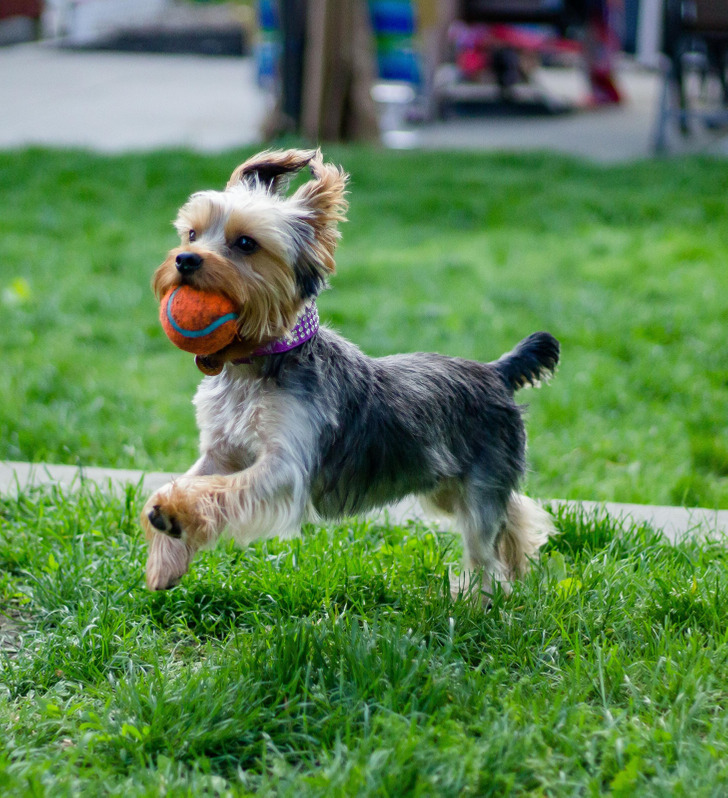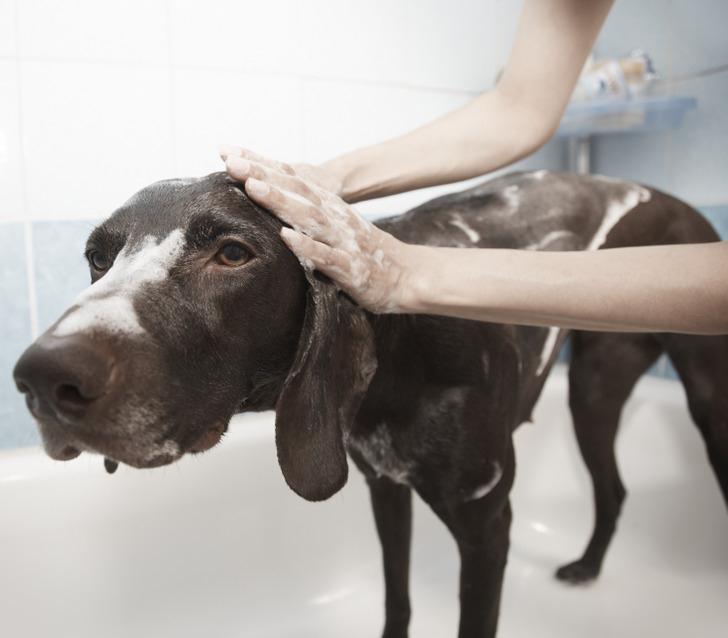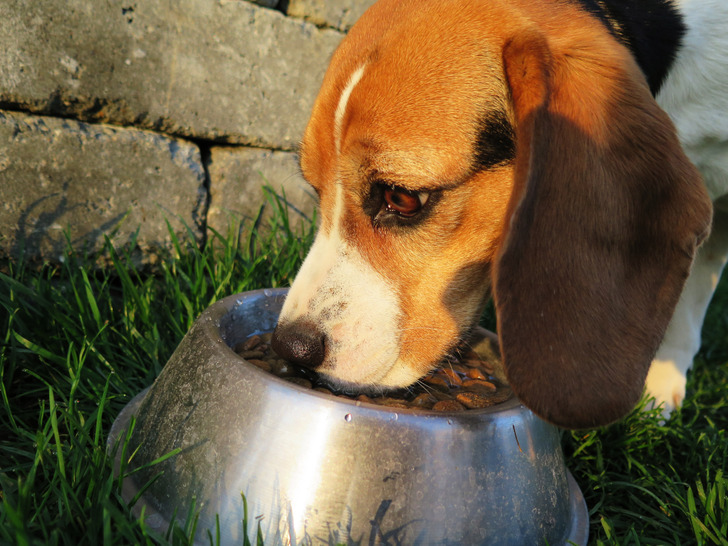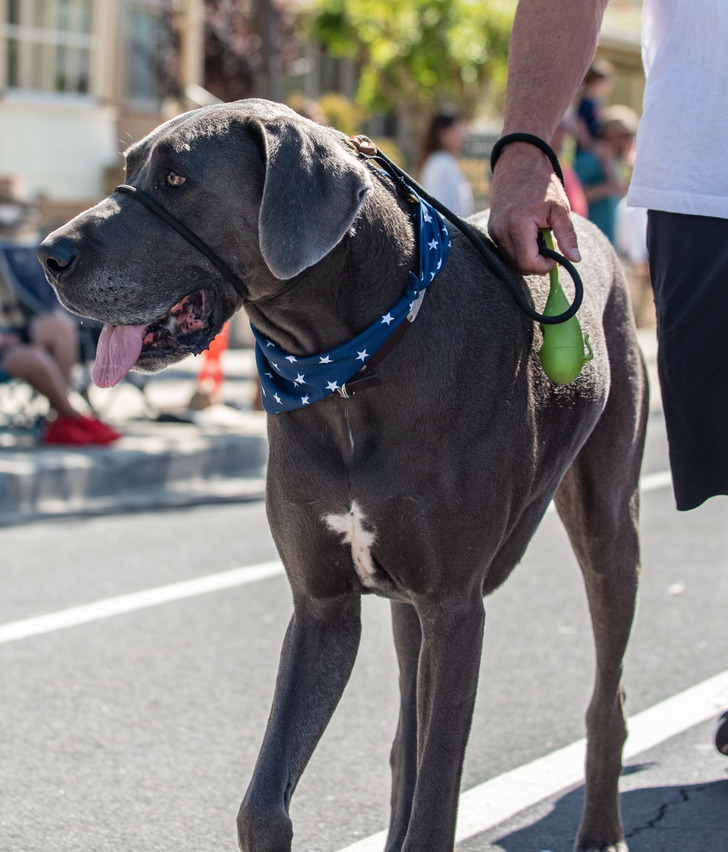Everything You Need to Know About How Dogs Age and Their Life Expectancy
Before taking the responsibility for bringing a dog home, it’s better to learn the peculiarities of certain breeds. Life expectancy is one of the crucial factors to be taken into account. We’ve gathered information to help you learn more about dogs’ lifespans and the factors that may promote your pet’s longevity. Don’t forget to read the bonus point about caring for our elderly tail-waggers.
It’s impossible to say for sure how long a dog will live but there is data on their average life expectancy. Also, it’s worth mentioning that breed isn’t always the most important thing in this matter. Different factors affect the life expectancy of your pet.
Lifestyle
Every owner knows that a dog needs quite a lot of attention. Animals need to be able to get enough physical activity. They need to be taken for a walk every day so that they release energy and warm up. For dogs, there are special areas where they can run, jump, and so on. Many people also take their pets to classes at special clubs. It all depends on your personal preferences.
In addition to physical activity, a 4-legged friend should also have mental stimulation. It is good for them to learn commands and just play. Dogs really appreciate attention from their owners and they love spending time together with them.
Hygiene
It is important to not forget about hygiene. If you don’t follow basic rules, this can lead to the growth of bacteria on your pet’s dishes, as well as on other surfaces in your home.
- Thoroughly wash the paws and other dirty areas on the pet’s body after a walk. Make sure that nothing is clogged between the pads of the paws and under the claws.
- Bathe your dog thoroughly, as often as the breed and coat require.
- Regularly brush a pet that has long or medium-length hair.
- Keep an eye on the ears and eyes of the animal and don’t forget to clean them.
- Monitor the condition of your pet’s teeth. You can brush your dog’s teeth with a special toothpaste. Follow the dentist’s recommendations for this.
- Keep your pet’s bowls clean by washing them daily.
- Wash and disinfect pet toys. The main thing is to use gentle detergents that don’t cause allergies.
- Don’t forget to wash your dog’s clothes, towel, and bed.
Health
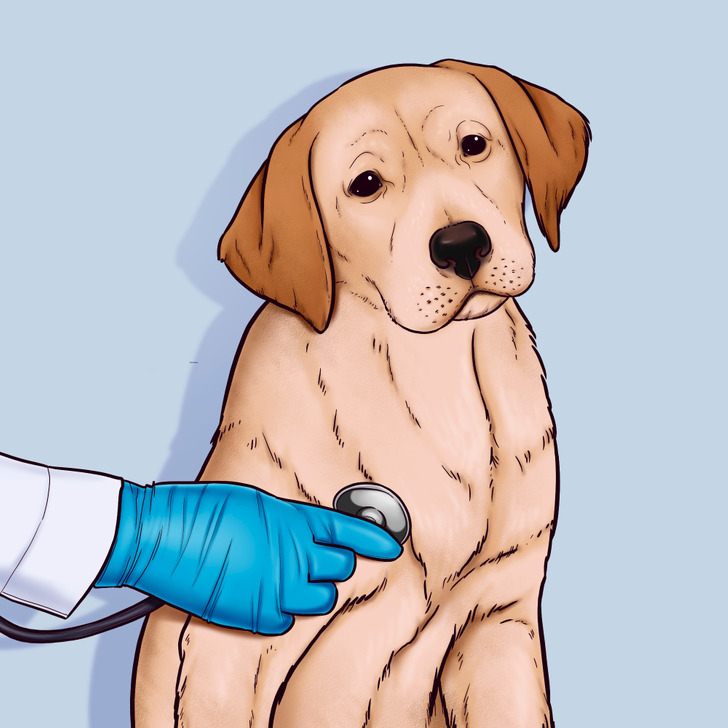
If you want your dog to live a long life, you need to monitor its health, take it to routine check-ups, and get regular vaccinations and other procedures. If your pet has chronic diseases, keep them under control and follow all of the doctor’s recommendations.
Different dog breeds are predisposed to certain diseases. Study them and their symptoms so that if they appear, you know to seek help immediately.
Remember that dogs, just like people, need to visit the dentist. They can develop periodontal disease, which leads to inflammation of the gums and loss of teeth.
Nutrition
It doesn’t matter if you buy your dog food or make it yourself, the main thing is to provide it with a healthy and balanced diet. The animal should consume proteins, fats, carbohydrates, vitamins, and microelements necessary for an active life. Talk to your vet about this and follow their advice.
Make sure that the dog doesn’t overeat, because excess weight can shorten its life. Provide your pet with constant access to clean drinking water — a dog can’t live without water.
Which dogs live longer
In wild nature, small animals and insects live a short life, while large ones live much longer. For example, on average, a housefly lives for a month, a rat lives 2-3 years, a horse can live up to 30 years, and an African elephant lives up to 70. This means that the size of animals and insects correlates with their life expectancy. But it’s different with dogs.
In most cases, small dogs live longer than large ones. There is no exact answer to the question of why this happens, but some experts believe that age-related diseases develop in large dogs earlier than in small ones.
- Small dogs live 10–15 years, and some breeds live up to 18 years or more.
- Medium-sized dogs live 10–13 years, but some breeds live longer.
- Large dogs live 8–12 years.
Remember that these are only average numbers. More accurate information can be found in the description of the breed.
Mixed-breeds tend to live longer than purebred dogs. This is because they have stronger immune systems and are less likely to get sick.
Life expectancy of popular dog breeds

Average life expectancy of the most popular dog breeds is:
- Labrador Retriever — 11 years
- German Shepherd — 11 years
- Golden Retriever — 11 years
- French Bulldog — 8–10 years
- Bulldog — 8–12 years
- Beagle — 12–15 years
- Poodle — 12 years
- Rottweiler — 9 years
- German Shorthaired Pointer — 12–14 years
- Boxer — 9–10 years
- Siberian Husky — 12–15 years
- Great Dane — 6–8 years
- Pembroke Welsh Corgi — 12–15 years
- Doberman Pinscher — 10–13 years
- Australian Shepherd — 12–18 years
- Miniature Schnauzer — 12–14 years
- Cavalier King Charles Spaniel — 9–14 years
- Shih Tzu — 12–16 years
- Boston Terrier — 11–15 years
- Havanese — 14–16 years
- Shetland Sheepdog — 12–13 years
- Bernese Mountain Dogs — 6–8 years
- Pug — 12–15 years
- Russian Toy — 10–15 years
Breeds with a short life expectancy
The life expectancy of dog breeds that live fewer years than other breeds (average numbers):
- French Mastiff — 5–8 years
- Great Dane — 6–8 years
- Bernese Mountain Dog — 6–8 years
- Irish Wolfhound — 6–10 years
- Neapolitan Mastiff — 7–9 years
- Leonberger — 8–9 years
- Newfoundland — 8–10 years
- Saint Bernard — 8–10 years
- Scottish Deerhound — 8–10 years
- Bloodhound — 9–11 years
10 of the longest living dog breeds

- Mediterranean Maltese — 12–15 years
- Jack Russell Terrier — 13–16 years
- Yorkshire Terrier — 16–20 years
- Toy Poodle — 14–20 years
- Cockapoo — 12–18 years
- Scottish Collie — 12–16 years
- Lhasa Apso — 14–20 years
- Pomeranian — 12–16 years
- Dachshund — 14–20 years
- Chihuahua — 14–20 years
These are also average numbers.
Bonus: tips for caring for elderly dogs
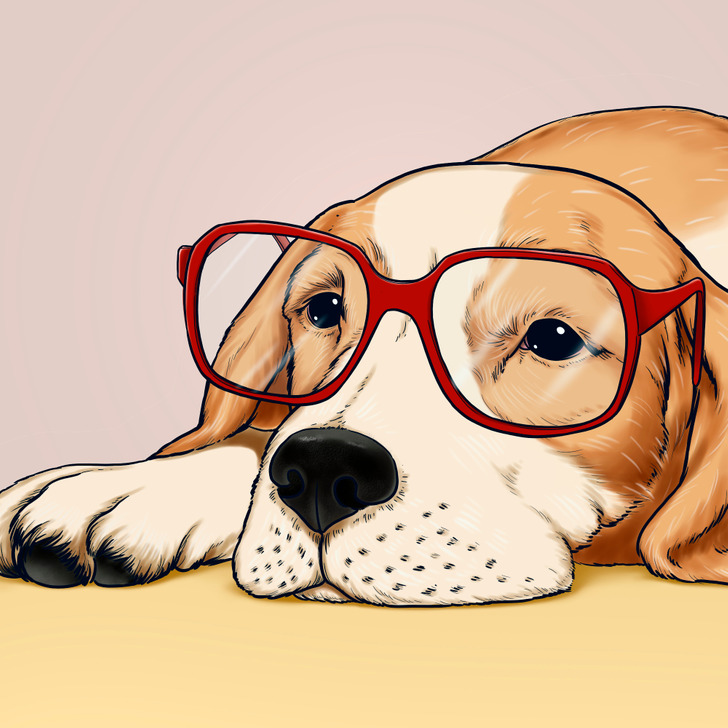
- Choose a healthy diet for your dog. You may have the desire to indulge your senior pet more than before, but it is crucial to keep the ratio balanced — since extra calories may cause weight gain and inflammation.
- Keep your dog’s activity at a high level. Movement is essential for the preservation of muscle mass. If the dog lacks exercise, its muscles start to decrease. This accelerates the aging process.
- Take your dog to the vet twice a year. Even if your pet behaves normally, a regular check-up may help to detect “clinically silent” health issues.
- Pay attention to dental care. Senior dogs are more prone to gum problems and teeth cracking. Brush your dog’s teeth regularly using special toothpaste and a finger brush, and don’t hesitate to visit the vet if you notice signs of swelling, bleeding, or pain.
- Do some mental exercises together. Reinforce the brain activity of your pet by playing hide-and-seek, going for a “scavenger hunt,” or using puzzle toys.
Who was your favorite childhood pet? Tell us in the comments!
